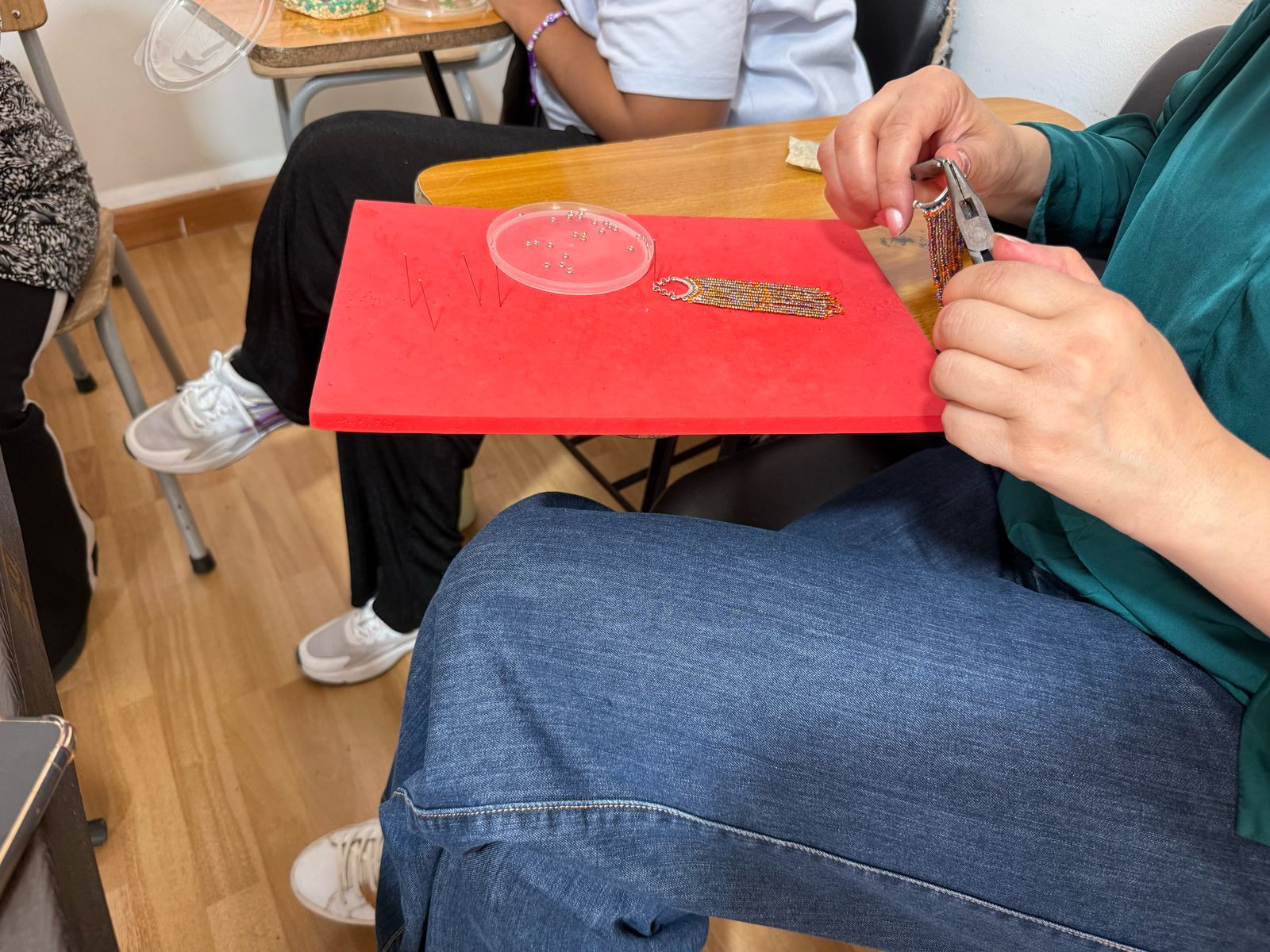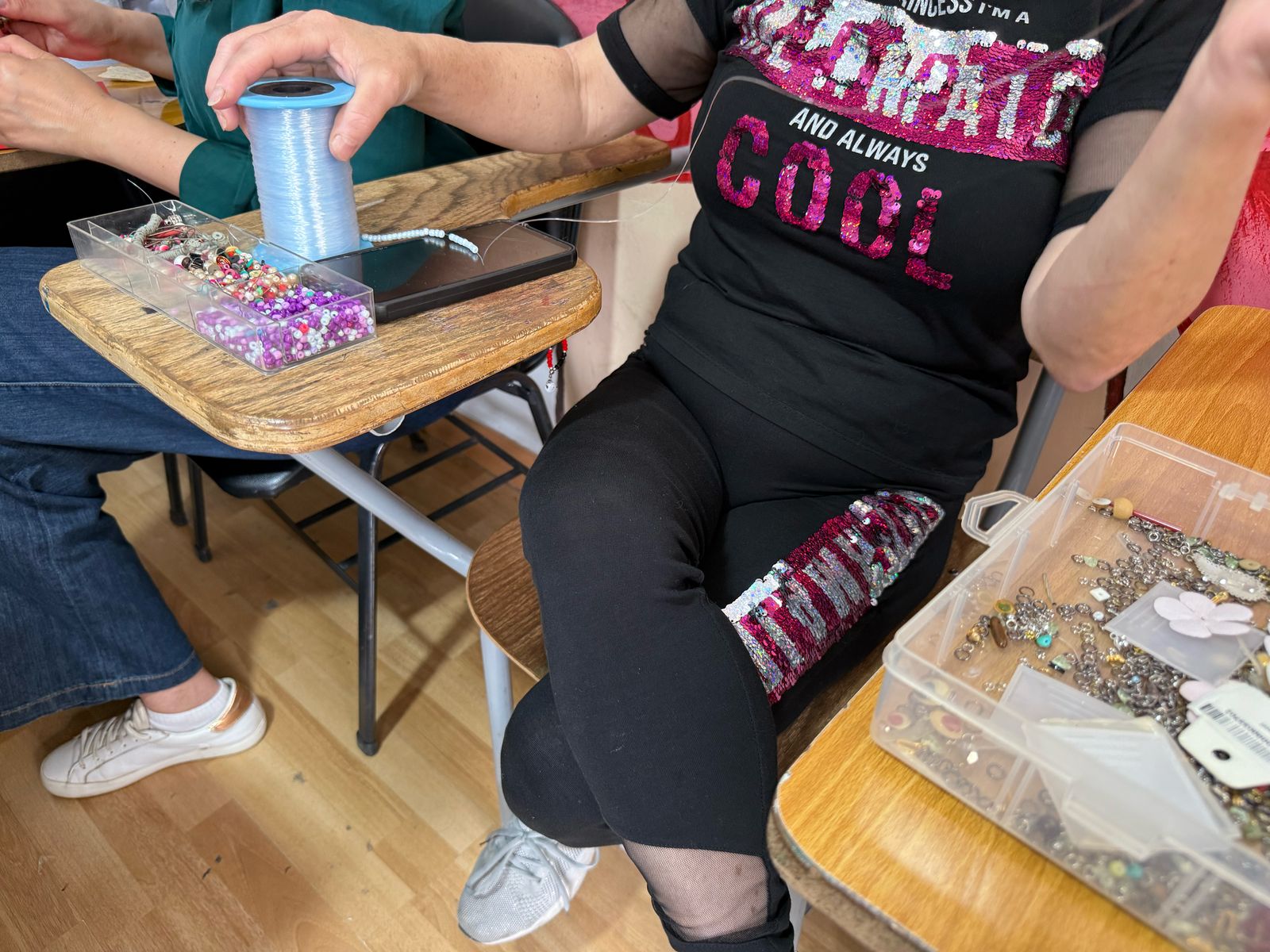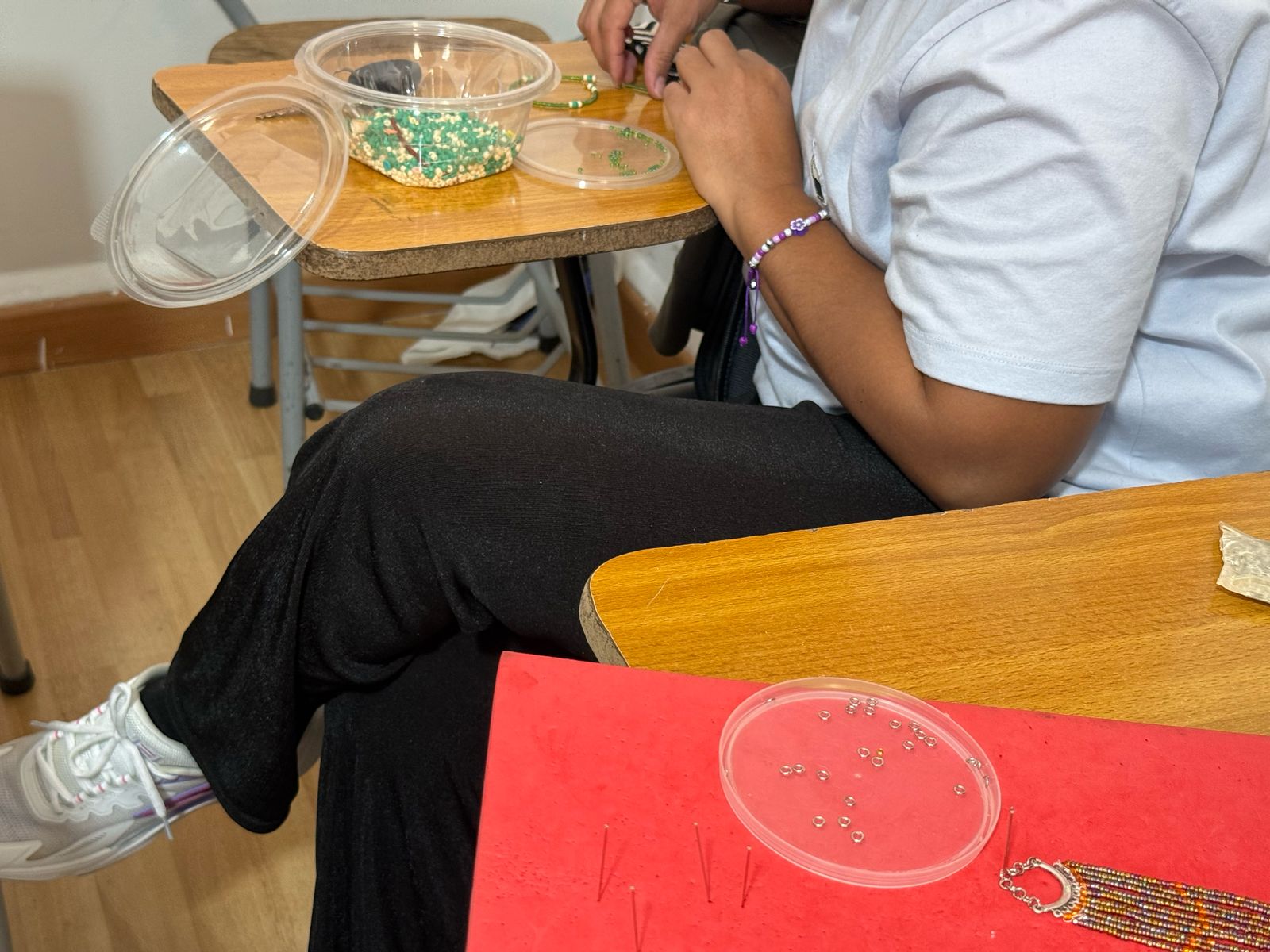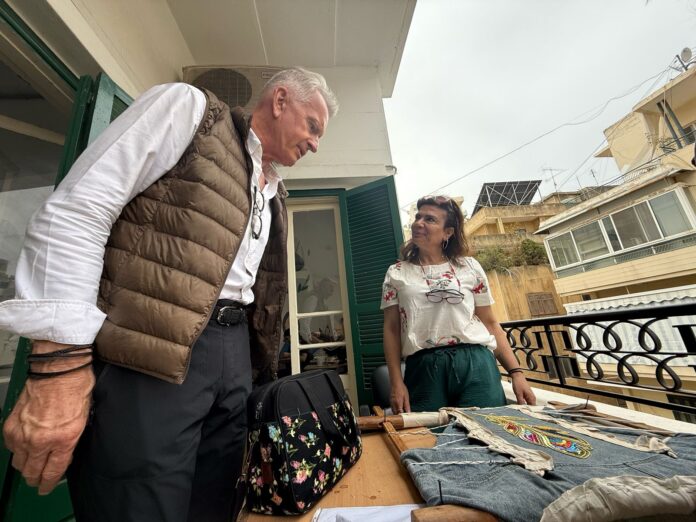In a modest classroom filled with the soft hum of sewing machines and the quiet concentration of women learning new stitches, Mirna Chaoul moves with the confidence of someone who has found her second home.
A resident of Ain El-Remmaneh, Mirna has been walking through the doors of the Amel Association International Center for the past 5 years. What started as a single embroidery class has turned into a journey of self-discovery, resilience, and professional growth.
“I first came to Amel in 2020,” Mirna recalls, her hands busy threading a needle. “At the time, I was looking for a way to support my family. I didn’t know how to hold scissors properly, let alone sew a straight line. But the trainers here saw potential in me before I saw it in myself.”

Mirna is just one of the many women—and men—who have benefited from Amel’s Protection Program, funded by the United Nations High Commissioner for Refugees (UNHCR). Implemented at Amel’s centers in Haret Hreik and Ain El-Remmaneh, the program offers free vocational training courses that empower participants socially and economically. It specifically targets individuals aged 16 to 59, many of whom are struggling to rebuild their lives amid socioeconomic hardship, displacement, or limited access to the labor market.
Over the years, the program in Ain El-Remmaneh has expanded to include an impressive array of professional training: Palestinian and Brazilian embroidery, sewing, crochet, hairdressing, beauty, mobile phone repair, graphic design, content creation, and more. Each course runs for three months, with certificates awarded at the end—and, in many cases, professional toolkits provided to help graduates launch their own micro-businesses.
Mirna has participated in more than a dozen courses. Today, she’s a skilled seamstress and often mentors younger participants. “It’s not just about the skills,” she says. “It’s the community. We support each other through everything—personal loss, economic struggles, even moments of joy. This center isn’t just a building, it’s a lifeline.”
 The Ain El-Remmaneh center, nestled in a busy Beirut neighborhood, operates like a hub of hope. Beyond vocational training, it offers psychological support, awareness sessions, and creative outlets like theater and photography. The goal is not just employment—but dignity, expression, and healing.
The Ain El-Remmaneh center, nestled in a busy Beirut neighborhood, operates like a hub of hope. Beyond vocational training, it offers psychological support, awareness sessions, and creative outlets like theater and photography. The goal is not just employment—but dignity, expression, and healing.
“Every time I learn something new, I feel younger,” Mirna laughs. “It reminds me that I still have value, that I can grow and give back.”
Her story speaks to the sustainability and impact of community-rooted empowerment. Over the years, Mirna has stitched together more than fabric—she’s woven a network of friendships, found purpose, and gained the confidence to dream again.
As Lebanon continues to face economic and social challenges, the Amel Center in Ain El-Remmaneh remains a vital sanctuary—where learning becomes liberation, and women like Mirna Chaoul lead by example.



 Creative Commons Attribution 4.0 International license
Creative Commons Attribution 4.0 International license